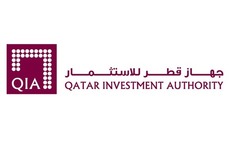
Q&A: Blackstone's Angelo Acconcia
The Blackstone Group has entered Southeast Asia's oil and gas space with an $800 million commitment to Tamarind Energy. Angelo Acconcia, managing director at Blackstone Energy Partners, explains the rationale
Q: What led to the investment in Tamarind?
A: We have been looking for a way to invest in Southeast Asia, specifically but not exclusively Indonesia, Malaysia and Vietnam, which are interesting hydrocarbon basins as well as countries with geopolitical stability. There was an opportunity to partner with a best-in-class team in those geographies and pursue a slightly different strategy to what I think PE or independents have pursued before. That is to focus on appraisal and development rather than an exploration. An appraisal and development model focuses on optimizing the amount of hydrocarbons you get out of the ground and/or lowering cost. Often this happens in partnership with other companies, so really this strategy is one of forming long-term partnerships with national oil companies and independents to help them develop oil and gas assets and drive production growth.
Q: The Tamarind team came out of Talisman. What makes them and best-in-class?
A: The ideal team has a long track record of success and experience with a specific technical area, and covers all of the critical areas to deliver on the thesis. We had been looking for this type of team for several years but hadn't found one that met all of the criteria. It just so happened that the Tamarind team had thought of pursuing this strategy independently - having executed on it successfully previously - and reached out to us. We had met with various exploration-focused teams and passed on a number of them. We didn't see the right combination of team members, focus area, and the exploration-based thesis seemed a little bit challenging. In Southeast Asia the national oil companies have all the information and when they look to farm out or sell down prospects there is a bit of reverse selection. Competition for assets has also increased.
Q: Why have there been relatively fewer oil and gas start-ups in Asia than North America?
A: First, not a lot of private equity firms have a global platform, experience in offshore oil and gas resources, and significant capital reserves. Second, there has been a lot to do in other areas of the globe, including North America. Third, our strategy focuses on identifying, recruiting and helping to support best-in-class teams to build long-term businesses. Those teams exist in Southeast Asia but they reside in the national oil companies or large independents and they don't often come loose. In North America the strategy and success of entrepreneurial teams being backed by private equity is more common knowledge, which in turn helps entrepreneurs who want to pursue that strategy understand the opportunity and increases labor mobility.
Q: To what extent can comparisons be drawn between Tamarind and Africa-focused Kosmos, which also involved backing an experienced team in a market far from North America?
A: With Kosmos the thesis was backing a best-in-class team that had success in the region at Triton. They focused on frontier basins with a specific technical thesis and there wasn't much competition at the time. Tamarind is also a best-in-class team but in a region that has seen a significant amount of success on exploration, appraisal and development. There is a good degree of competition from the independents and the national oil companies. So whereas Kosmos was an exploration-based strategy and the thesis was one of acting alone, Tamarind is an appraisal and development-based strategy where they don't intend to act alone; they want to be a partner of choice for the national oil companies and the independents to help them do things they wouldn't otherwise be able to do.
Q: What will Tamarind help them do?
A: We see significant potential forming long-term partnerships with companies that may not have specific technical expertise, bandwidth or resources for any one project and helping them to develop their assets and drive production growth. These may be assets that are challenging to develop, may need significant investment in infrastructure to get hydrocarbons to market, or require a specific development plan. For example, the below-ground aspects of the reservoir - high temperature and high pressure - might create a more onerous drilling environment. Finally, there could be some big fields that have come to what others believe to be the natural end of their lives and there is an opportunity to squeeze more from the grape.
Q: How is the capital going to be deployed?
A: That $800 million is equity from Blackstone Energy Partners and Blackstone Capital Partners VI. We have an ability to make investments of up to $1.5 billion in equity so if we find an attractive project there is room to increase the size of the investment. There is also the potential to use other sources of capital such as debt.
Q: What difference is there between exploration and appraisal ventures in terms of the timing and size of the financing?
A: Typically an exploration strategy will start out with 7-12 prospects and you will spend a relatively small amount of money to secure those prospects and on data aggregation and mapping sets to help refine one's views on the potential for oil, the size of the potential discovery and the risk. And the rule of thumb is your chances of success are one in three, four or five. Once you have made a discovery and move from exploration into appraisal and then development, the magnitude of capital required increases significantly. An appraisal and development strategy is more capital intensive because you are already dealing with success - drilling more wells and investing in infrastructure not only to take the hydrocarbons out of the ground but to whatever point at which the commodity is going to be monetized.
Latest News
Asian GPs slow implementation of ESG policies - survey
Asia-based private equity firms are assigning more dedicated resources to environment, social, and governance (ESG) programmes, but policy changes have slowed in the past 12 months, in part due to concerns raised internally and by LPs, according to a...
Singapore fintech start-up LXA gets $10m seed round
New Enterprise Associates (NEA) has led a USD 10m seed round for Singapore’s LXA, a financial technology start-up launched by a former Asia senior executive at The Blackstone Group.
India's InCred announces $60m round, claims unicorn status
Indian non-bank lender InCred Financial Services said it has received INR 5bn (USD 60m) at a valuation of at least USD 1bn from unnamed investors including “a global private equity fund.”
Insight leads $50m round for Australia's Roller
Insight Partners has led a USD 50m round for Australia’s Roller, a venue management software provider specializing in family fun parks.







